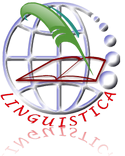THE VIOLATION OF COOPERATIVE PRINCIPLE A CASE OF HUMOROUS VERBAL CARTOON IN KOMPAS
DOI:
https://doi.org/10.24114/jalu.v2i3.936Abstract
Abstract This research is aimed at describing the types of maxim violated in humorous verbal cartoon in Kompas, to find out the type of the maxims that is dominantly violated in it and to find out the causes. The method of research is descriptive qualitative research. The data is analyzed by interpreting the conversations and analyzing them based on the types of the maxim violated. From the data, it was found that the violation of the maxim of quality is 12 (20.33%), the violation of the maxim of quantity is 25 (42.37%), the violation of manner is 15 (25.42%), and the violation of the maxim of relevance is 7 (11.86%). The frequency and the percentage shows that maxim of quantity is the dominant type of maxim which is violated. Key words: cooperative principle, maxim, cartoon, humorDownloads
Issue
Section
Articles
License
Copyright (c) 1970 Mory Yana Gultom, Elia Masa Gintings

This work is licensed under a Creative Commons Attribution-ShareAlike 4.0 International License.
Authors who publish with this journal agree to the following terms:
- Authors retain copyright and grant the journal the right of first publication with the work simultaneously licensed under a Creative Commons Attribution License that allows others to share the work with an acknowledgment of the work's authorship and initial publication in this journal.
- Authors are able to enter into separate, additional contractual arrangements for the non-exclusive distribution of the journal's published version of the work (e.g., post it to an institutional repository or publish it in a book), with an acknowledgment of its initial publication in this journal.
- Authors are permitted and encouraged to post their work online (e.g., in institutional repositories or on their website) prior to and during the submission process, as it can lead to productive exchanges, as well as earlier and greater citation of published work (See The Effect of Open Access).
- This work is licensed under a Creative Commons Attribution-ShareAlike 4.0 International License.

